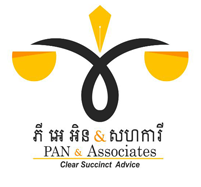Contract disputes in Cambodia are governed by the Civil Code, and Code of Civil Procedure. These codes provide the legal framework for resolving disagreements arising from contractual relationships. A contract dispute occurs when parties to a contract disagree on the interpretation, fulfillment, or enforcement of the terms of the agreement. Below is an outline of how contract disputes are typically handled under Cambodian law.
Common Causes of Contract Disputes
- Breach of Contract: This occurs when one party fails to perform their obligations as outlined in the contract. Breaches can be minor (partial failure) or material (significant failure), which may determine the available remedies.
- Ambiguity in Terms: Disputes may arise due to unclear or vague language in the contract, leading to differing interpretations of the parties’ obligations.
- Non-performance: If a party does not perform their duties on time or at all, this can lead to disputes, especially if the delay or failure causes harm to the other party.
- Misrepresentation: If one party made false statements or promises during contract formation, the other party may seek to dispute the contract on grounds of misrepresentation or fraud.
- Force Majeure: Unforeseen events such as natural disasters, political instability, or pandemics can lead to disputes over whether non-performance is excusable under the contract.
Legal Framework and Principles
- Freedom of Contract: Under Cambodian law, parties have the freedom to enter into contracts and agree on terms, as long as those terms do not violate public policy or laws. However, all contracts must be performed in good faith.
- Interpretation of Contracts: In cases of ambiguity, the Civil Code requires that contracts be interpreted in a manner that reflects the true intent of the parties, considering the circumstances of the agreement and common business practices.
- Good Faith: Cambodian law imposes an obligation on all parties to act in good faith in the performance and enforcement of their contractual obligations.
Resolution Methods
- Negotiation: Parties are encouraged to resolve disputes through direct negotiation, which allows for a flexible and informal resolution without court involvement. This is often the first step in attempting to resolve a contract dispute.
- Mediation: If negotiations fail, the parties may seek mediation, where a neutral third party (mediator) helps facilitate a settlement. Mediation is non-binding unless the parties reach an agreement, which can then be formalized in writing.
- Arbitration: For more formal resolution, parties may opt for arbitration. Arbitration in Cambodia is governed by the Law on Commercial Arbitration, which provides for a binding decision by an arbitrator. Arbitration is often faster and more confidential than court litigation.
- Litigation: If alternative dispute resolution methods fail, parties may file a lawsuit in court. Cambodian courts have jurisdiction over contract disputes unless the contract specifies arbitration or another forum for resolution.
Litigation Process in Contract Disputes
- Filing a Lawsuit: The aggrieved party can file a lawsuit in the competent court, usually the court where the defendant resides or where the contract was performed. The complaint should detail the nature of the dispute, the relief sought, and any evidence supporting the claim.
- Court Proceedings: After filing, the court will notify the defendant, who must respond within a specified time. Both parties will present their evidence and arguments during the court hearings.
- Judgment: The court will issue a judgment based on the evidence and arguments presented. If the court finds that a breach occurred, it may order the breaching party to pay damages, perform specific obligations, or terminate the contract.
- Appeal: Parties dissatisfied with the court’s decision may appeal to a higher court within the time limits set by law.
Remedies for Breach of Contract
- Damages: The most common remedy is monetary compensation for losses suffered due to the breach. This can include compensatory damages (actual losses) and, in some cases, interest on delayed payments.
- Specific Performance: In some cases, the court may order the breaching party to fulfill their contractual obligations, especially when damages are insufficient to remedy the breach.
- Termination of Contract: If the breach is material, the non-breaching party may request the court to terminate the contract, which releases both parties from their obligations under the agreement.
- Rescission: The contract can be canceled if it was formed based on fraud, misrepresentation, or mistake, restoring the parties to their pre-contractual positions.
Key Considerations
- Statute of Limitations: In Cambodia, the statute of limitations for filing a contract dispute claim is generally five years from the date the cause of action arises, although this may vary depending on the nature of the contract.
- Jurisdiction Clauses: Contracts often include clauses specifying which court or arbitration body has jurisdiction in case of a dispute. Cambodian courts typically uphold such clauses, provided they are clear and agreed upon by both parties.
- Foreign Contracts: For contracts involving foreign parties, Cambodian law allows for the enforcement of foreign judgments and arbitral awards, provided they comply with international treaties and local laws.
Conclusion
Contract disputes in Cambodia require careful consideration of the terms of the contract, the parties’ obligations, and the applicable laws. Parties are encouraged to resolve disputes through negotiation or alternative dispute resolution methods, but litigation remains an option when these efforts fail. Legal counsel is recommended to ensure proper handling of the dispute and to navigate the complexities of Cambodian contract law.

